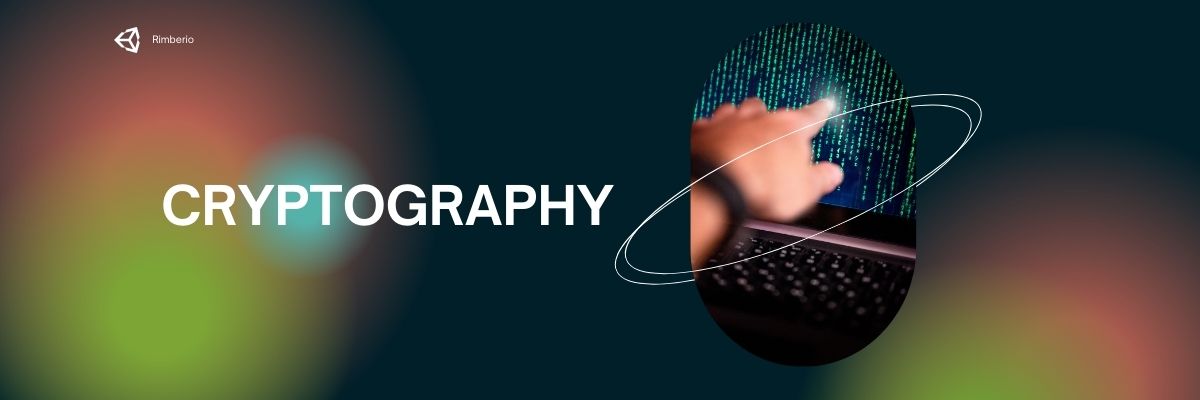- If you have any questions, please contact us!
- +84 332 952 080
- info@greennrj.com.vn
How to Import Civil Cryptographic Products into Vietnam (2025 Guide)

Vietnam Ends Import Tax Exemption for Low-Value E-Commerce Shipments Starting February 2025
March 21, 2025
How to Claim VAT Refunds in Vietnam (2025): Guide for Foreign Investors & Exporters
April 1, 2025Table of Contents
Introduction
Importing civil cryptographic products into Vietnam involves a complex and tightly regulated process designed to protect national security and ensure data protection. Since these products utilize encryption technologies, their import is subject to strict legal controls under Vietnam’s cybersecurity and import regulations. Businesses looking to import civil cryptographic products into Vietnam must comply with licensing requirements, conformity assessments, and technical standards set by Vietnamese authorities.
This comprehensive guide explains the step-by-step procedures, legal frameworks, and best practices for successfully importing civil cryptographic products into Vietnam in
Understanding Civil Cryptographic Imports in Vietnam
Civil cryptographic products are encryption technologies designed for civilian, non-military use. These products play a critical role in securing digital communications, protecting sensitive data, and enabling safe electronic transactions. In Vietnam, the importation of civil cryptographic products is regulated under strict cybersecurity and national security frameworks, due to the sensitive nature of encryption technologies.
Although used for commercial and enterprise purposes, civil cryptographic products can still pose national security risks if misused. As a result, Vietnam requires importers to comply with specific licensing procedures, technical standards, and product conformity regulations before such products can be circulated in the domestic market.
Common examples of civil cryptographic products include:
-
Virtual Private Network (VPN) solutions: Enable encrypted remote access to corporate networks, widely used in cross-border business operations.
-
Encrypted messaging applications: Provide end-to-end encryption to protect personal and organizational communications.
-
Secure USB drives with hardware-based encryption: Store confidential data securely, especially in government and finance sectors.
-
Digital signature tools: Authenticate users and ensure the integrity of electronic documents and transactions.
-
Hardware Security Modules (HSMs): Specialized cryptographic devices used in banking, fintech, and cybersecurity systems to manage encryption keys securely.
These encryption-based products are subject to Vietnam’s import regulations and must be reviewed for compliance with local standards before being distributed or used commercially. Understanding the categories and functions of civil cryptographic products is the first step toward navigating Vietnam’s regulated import environment.
Legal Framework & Regulations
The importation of civil cryptographic products in Vietnam is governed by several key legal documents:
- Law on Cyber Information Security (2015): Establishes the foundation for managing civil cryptographic products and services.
- Decree No. 58/2016/ND-CP: Details the business conditions for civil cryptographic products and services, as well as import and export procedures.
- Decree No. 32/2023/ND-CP: Updates the list of civil cryptographic products subject to import and export licensing, aligning with the latest Harmonized System (HS) codes.
- Circular No. 13/2018/TT-BTTTT: Defines conformity assessment requirements for cryptographic products before they can be sold in the Vietnamese market.
Steps to Import Civil Cryptographic Products
Importing civil cryptographic products into Vietnam requires strict compliance with licensing procedures, legal entity requirements, and customs documentation. Below is a detailed, SEO-optimized step-by-step guide for businesses and importers.
1. Establish a Legal Entity or Appoint an Importer of Record (IOR)
Foreign companies seeking to import civil cryptographic products into Vietnam must first establish a legitimate presence or partner with a licensed importer.
Two options are available:
-
Set up a legally registered business in Vietnam with a business scope that includes importing or trading civil cryptographic products.
-
Partner with an authorized Importer of Record (IOR) in Vietnam. The IOR holds the required licenses and acts on behalf of the foreign company to manage import licenses, compliance, and customs procedures.
Using an IOR is a common strategy for foreign entities that do not wish to set up a local company but still need to meet Vietnam’s strict import compliance for encryption technologies.
2. Apply for a Business License for Civil Cryptographic Products and Services
To legally engage in importing or distributing civil cryptographic products, a business license must be obtained from the Government Cipher Committee (GCC).
Application documents include:
-
Completed application form for the business license.
-
Certified copy of the Enterprise Registration Certificate (ERC) or equivalent legal documents.
-
Documentation proving technical and managerial personnel qualifications in the field of information security and cybersecurity.
-
Detailed description of the intended products, services, and business operations.
Where to submit: Government Cipher Committee (Ban Cơ yếu Chính phủ)
Processing timeline: Typically 1.5 to 2 months, depending on the completeness and accuracy of the application.
3. Apply for an Import License for Civil Cryptographic Products
Once the business license is granted, the next step is to obtain an import license specifically for the civil cryptographic products you intend to bring into Vietnam.
Prerequisites:
-
A valid business license approved by the GCC.
-
Each product must be certified for conformity with Vietnam’s technical standards before entering the domestic market.
Required documents:
-
Import license application form.
-
Certified copy of the GCC-issued business license.
-
Certificate of Conformity (CoC) proving compliance with Vietnamese encryption and cybersecurity standards.
Submission location: Government Cipher Committee (GCC)
Timeline: The license is issued upon successful review and approval by the GCC.
4. Complete Customs Clearance with Required Documentation
After obtaining the import license, the final step is customs clearance. Importers must present a full set of documents to the Vietnamese Customs Authority for the encrypted products to be legally cleared into the country.
Required customs documents include:
-
Import license issued by the Government Cipher Committee.
-
Commercial invoice and detailed packing list.
-
Bill of lading (B/L) or airway bill (AWB).
-
Certificate of Origin (C/O) verifying the country of manufacture.
Procedure: Submit all documents to the customs office at the port of entry. Any inconsistencies or missing documents may lead to delays or denial of clearance.
Best Practices for Compliance
Successfully importing civil cryptographic products into Vietnam requires more than just obtaining licenses—it also demands continuous compliance with legal, technical, and procedural standards. Below are the most effective and SEO-optimized best practices for maintaining full compliance with Vietnam’s import regulations on encryption technologies.
1. Stay Informed on Regulatory Updates in Vietnam
Vietnam’s laws governing the importation and management of civil cryptographic products are subject to change based on cybersecurity threats and international standards. It’s essential to:
-
Regularly monitor updates to the Law on Cyber Information Security, Decree No. 32/2023/ND-CP, and relevant circulars.
-
Subscribe to government bulletins or legal update services.
-
Monitor changes in Harmonized System (HS) codes for encryption-related goods.
2. Consult Legal and Compliance Experts in Vietnam
Navigating Vietnam’s cryptographic import framework can be complex. Engaging local legal advisors and compliance consultants ensures:
-
Proper interpretation of licensing requirements and import procedures.
-
Assistance in preparing legally valid documentation for the Government Cipher Committee (GCC) and Customs Authority.
-
Reduced risk of delays, rejections, or penalties.
3. Maintain Comprehensive and Organized Documentation
Complete and accurate documentation is crucial for import audits, customs inspections, and license renewals. Importers should:
-
Keep digital and physical records of all import licenses, business licenses, certificates of conformity, and customs clearance documents.
-
Store communication records with government agencies and testing laboratories.
-
Maintain transaction records for traceability and transparency.
4. Conduct Product Testing and Obtain Certification of Conformity
Before civil cryptographic products can be sold or used in Vietnam, they must undergo testing and receive a Certificate of Conformity (CoC).
-
Use only accredited conformity assessment bodies recognized by the Ministry of Information and Communications.
-
Ensure that testing covers all relevant encryption, cybersecurity, and safety standards.
-
Include the CoC in the import license application to avoid approval delays.
5. Leverage Importer of Record (IOR) Services for Foreign Businesses
If you are a foreign company without a registered entity in Vietnam, using a licensed Importer of Record (IOR) can simplify the process:
-
The IOR handles all regulatory procedures on your behalf, including licensing, customs clearance, and product registration.
-
This approach minimizes legal risk and ensures compliance with Vietnam’s civil cryptographic import laws.
By applying these best practices, companies can reduce risk, accelerate processing times, and maintain full legal compliance while importing civil cryptographic products into Vietnam.
Conclusion
Importing civil cryptographic products into Vietnam requires a thorough understanding of the country’s regulatory landscape, including licensing, conformity certification, and customs procedures. With strict laws aimed at protecting national cybersecurity, foreign and local businesses must follow each legal step carefully to ensure full compliance.
By securing a business license for cryptographic services, obtaining the appropriate import license, and completing customs clearance with accurate documentation, companies can legally bring encryption products into the Vietnamese market. As cybersecurity regulations continue to evolve, staying updated on new decrees and conformity standards is crucial for long-term success.
📩 Need Support with Cryptographic Product Imports into Vietnam?
Green NRJ specializes in helping international businesses import civil cryptographic products into Vietnam in full compliance with local laws. Whether you need assistance with:
-
Business license registration with the Government Cipher Committee (GCC)
-
Product conformity certification and testing
-
Import license application and renewal
-
Customs clearance and Importer of Record (IOR) services
👉 Contact Green NRJ for expert support and a smooth importation process:
Related Articles
- How to Start a Business in Vietnam: A Complete Guide for 2025
- Guide to Importing to Vietnam
- Understanding Importer of Record (IOR) Services for Vietnam



2 Comments
[…] Import Procedures for Civil Cryptographic Products in Vietnam: Regulations & Legal Compliance […]
[…] Import Procedures for Civil Cryptographic Products in Vietnam: Regulations & Legal Compliance […]